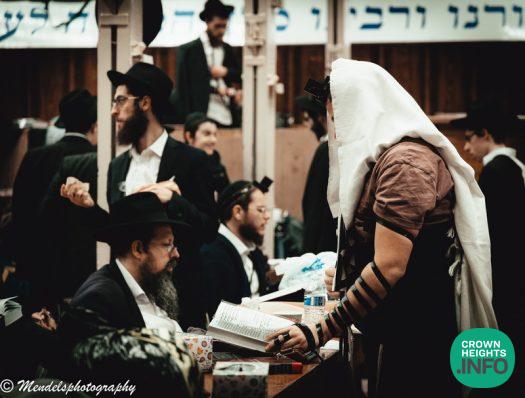
Weekly Dvar Torah: Moshe and the War Against Midyan
Moshe was commanded by Hashem to destroy Midyan before he passes away.
Why was Moshe the one who needed to lead the war on Midyan, couldn’t he just tell the generals to send the troops to do the job like it happened in previous wars?
Let’s understand what was the purpose of destroying Midyan.
Midyan (מדין) stands for strife, division and chaos.
Midyan’s focus is to sow strife, discord and chaos, diametrically opposed to Hashem, Torah, and the Jewish nation, a Hashem of peace, a Torah of peace, and a united Jewish people.
Peace and harmony are the core of the human condition, the seven emotions that control human behavior are different and diversified, and a healthy and mature balance, of kindness, discipline, etc. come as a result of the intellectual comprehension of what is necessary at any given time.
Just like we see by children that they are prone to behavior which can erupt into temper tantrums and uncontrollable behavior, and no reasoning will tamper their emotional outburst, the emotions overpower the intellect which by a child is immature, and each emotion goes to the wild extreme.
However, a healthy adult can control the emotions because of maturity; the wisdom, understanding, knowledge and connection of the brain, one takes charge to control the emotions.
An adult is able to keep his emotions balanced and mature; the mind controls the conflicting emotions to coexist in a balanced manner.
Midyan is all about strife, there is no coexistence, and every emotion pulls to the extreme without the ability to control and coexist, the result is chaos.
Moshe is the shepherd who feeds Daas = knowledge concentration and attachment, he connects the three parts of the intellect with the seven emotions, to take charge and control of the discord and chaos created by Midyan within the emotions, by empowering the mind over the out of control emotions.
Therefore, only Moshe and his unique quality to connect the mind with the emotions, is able to overpower the discord and chaos created by Midyan.
This is was what the war on Midyan was all about.
We read about the war against Midyan during the three weeks of mourning for the destruction of the two Batei HaMikdosh, this is clearly apropos because it allows us to reflect on the reasons for the destruction, and teaches us the means how to have the Temple rebuilt with the coming of Moshiach speedily.
What we find interesting, is that the first temple was destroyed because the Jewish people were guilty of idolatry, adultery and murder, the three most egregious violations of all the Mitzvos of the Torah.
Yet, after only seventy years the exile was over, and the Jews were able to build the second temple.
However, the second temple was destroyed because of division and discord, even when the Jews kept the Torah, yet the Sinas Chinom = the inexcusable hatred between Jews, sent us into exile, and 1950 years later we’re still in exile, why so long?
The sins of the first temple came as a result of the evil inclination of the seven emotions, stemming from the seven nations which previously inhabited the land of Israel, each emotion effected another type of sin, so it took 70 years to redirect the negative energy to become positive by introducing the three intellectual faculties into the seven emotions, and they created an order to take the Jews out of chaos, hence the need for 70 years in exile.
The sin of hatred and discord caused out-and-out chaos, it didn’t allow the intellect to take control, for that there is only one solution; we must undo the cause for discord, it won’t fix itself unless we totally focus on harmony and unity.
Without Moshe this seems to be a difficult mission to accomplish, Moshe, and only Moshe, can infuse us with Daas, knowledge concentration and attachment, in order to take charge of the dissonance and create an order in this emotional chaos.
Bring Moshe into your life, allow the intellect to take charge of your emotions, get rid of the discord and focus on unity, and we’ll merit Moshiach now!
Have a Moshiach Shabbos,
Gut Shabbos
Rabbi Yosef Katzman













